Search the Special Collections and Archives Portal
Search Results
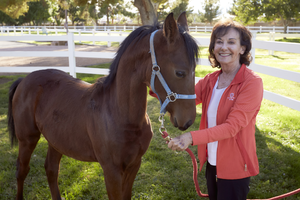
Photograph of Elaine Galatz with horses, Las Vegas (Nev.), October 31, 2016
Date
Archival Collection
Description
Elaine Galatz has lived on her horse ranch since the 1980's. She has taken her prized Morgan horses around the country to compete at the highest levels.
Image
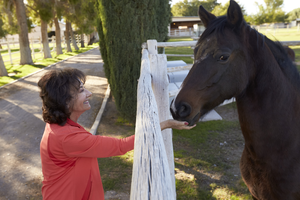
Photograph of Elaine Galatz with horses, Las Vegas (Nev.), October 31, 2016
Date
Archival Collection
Description
Elaine Galatz has lived on her horse ranch since the 1980's. She has taken her prized Morgan horses around the country to compete at the highest levels.
Image
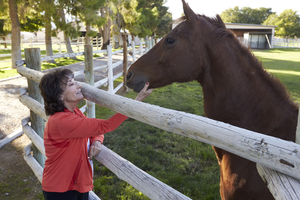
Photograph of Elaine Galatz with horses, Las Vegas (Nev.), October 31, 2016
Date
Archival Collection
Description
Elaine Galatz has lived on her horse ranch since the 1980's. She has taken her prized Morgan horses around the country to compete at the highest levels.
Image
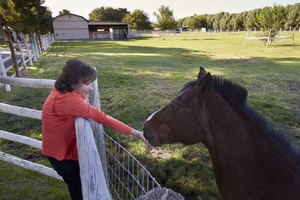
Photograph of Elaine Galatz with horses, Las Vegas (Nev.), October 31, 2016
Date
Archival Collection
Description
Elaine Galatz has lived on her horse ranch since the 1980's. She has taken her prized Morgan horses around the country to compete at the highest levels.
Image
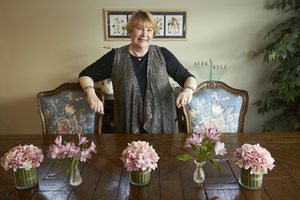
Photograph of Barbara Raben, Henderson, Nevada, November 01, 2016
Date
Archival Collection
Description
Longtime Southern Nevada resident Barbara Raben poses in her Henderson home. Raben has been involved with the Hadassah Southern Nevada Chapter and the Jewish Family Service Agency.
Image
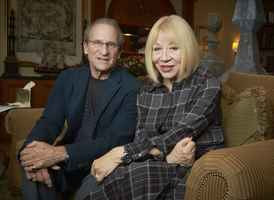
Photograph of Michael and Sonja Saltman, Las Vegas (Nev.), November 01, 2016
Date
Archival Collection
Description
Michael and Sonja Saltman in the Library room at Park Towers.
Image
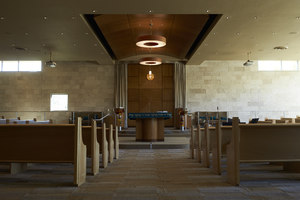
Photograph of Midbar Kodesh Temple Sanctuary, Henderson (Nev.), November 10, 2016
Date
Archival Collection
Description
Designed to bring the Bimah eye level with those who have come to worship, the Sanctuary at Midbar Kodesh Temple in Henderson breaks with the more traditional staging. The Sanctuary was dedicated by the Yacobovsky Family, in memory of Rhonda Firstenberg and Shoshana and Moshe Yacobovsky.
Image
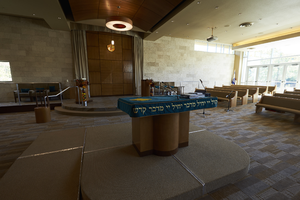
Photograph of Midbar Kodesh Temple Sanctuary, Henderson (Nev.), November 10, 2016
Date
Archival Collection
Description
Designed to bring the Bimah eye level with those who have come to worship, the Sanctuary at Midbar Kodesh Temple in Henderson breaks with the more traditional staging. The Sanctuary was dedicated by the Yacobovsky Family, in memory of Rhonda Firstenberg and Shoshana and Moshe Yacobovsky.
Image
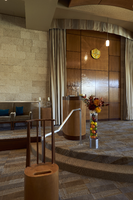
Photograph of Midbar Kodesh Temple Sanctuary, Henderson (Nev.), November 10, 2016
Date
Archival Collection
Description
Designed to bring the Bimah eye level with those who have come to worship, the Sanctuary at Midbar Kodesh Temple in Henderson breaks with the more traditional staging. The Sanctuary was dedicated by the Yacobovsky Family, in memory of Rhonda Firstenberg and Shoshana and Moshe Yacobovsky.
Image
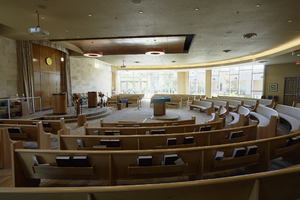
Photograph of Midbar Kodesh Temple Sanctuary, Henderson (Nev.), November 10, 2016
Date
Archival Collection
Description
Designed to bring the Bimah eye level with those who have come to worship, the Sanctuary at Midbar Kodesh Temple in Henderson breaks with the more traditional staging. The Sanctuary was dedicated by the Yacobovsky Family, in memory of Rhonda Firstenberg and Shoshana and Moshe Yacobovsky.
Image
